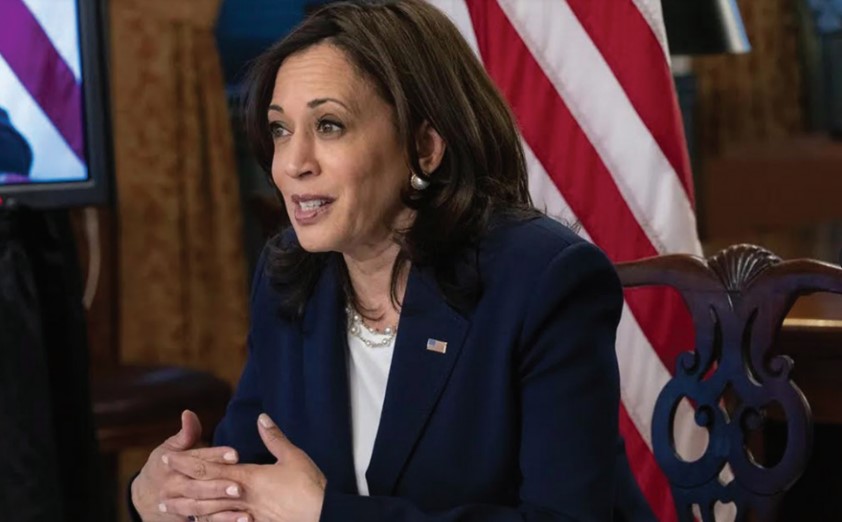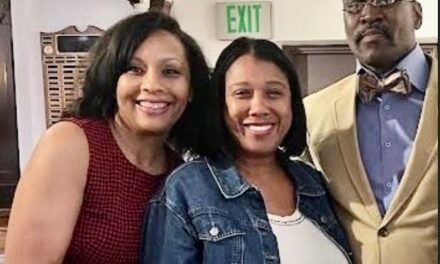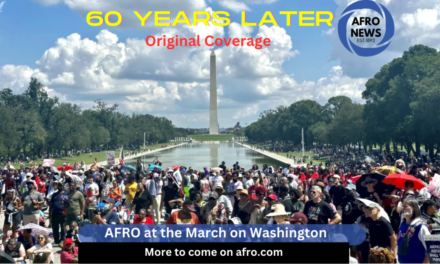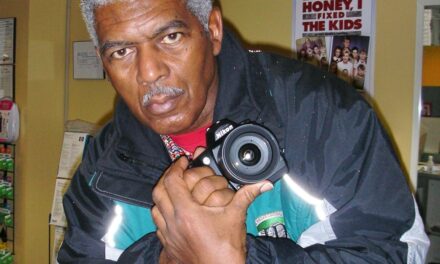By Deborah Bailey,
AFRO Contributing Editor
Vice President Kamala Harris is leading the charge to support underserved Black business across America. From the Sycamore and Oak small business retail incubator in Southwest D.C., Harris recently announced the Capital Readiness Program, a new $125 million federal initiative designed to help underserved entrepreneurs launch and scale small businesses.
“President Biden and I are fighting to ensure that every entrepreneur in America — no matter who they are or where they live — can access the capital to start or grow a business, create jobs, and thrive,” Harris said during the announcement.
A total of the 43 business accelerators will receive millions from the Minority Business Development Agency (MBDA), U.S. Department of Commerce.
The Capital Readiness Program is the largest Federal government investment in small business incubators and accelerators in history. Forty-three organizations have been selected by the MBDA to receive the funding to supply support to the under-served small business community across the nation.
The organizations, a mix of private, non-profit and university-based entities, will provide “hands on” business incubation and acceleration support. This kind of up close and personal small business support is especially important.
“For America’s economy to be strong, America’s small business must be strong,” Harris said as she introduced several of the 43 organizations selected for the Capital Readiness program, including The Capital Region Minority Supplier Development Council (CRMSDC), headquartered in Silver Spring, Md.
CRMSDC will receive $3 million to work with six HBCU and minority serving institutions (MSI’s) across the Maryland and Virginia area, including Bowie State University, Morgan State University and Virginia State University to identify Black and other minority entrepreneurs for specialized business support.
Many Black entrepreneurs and minority owned businesses were left disappointed after Corporate America made extravagant promises to create access and opportunities after the death of George Floyd in 2022.
“Corporate America has spent billions to diversify supply chains. But promises made at the top of companies aren’t necessarily translating into spending from the bottom,” said Black Chamber of Commerce President Chares DeBow III via his Twitter account in May.
McKinsey and Company’s Institute for Black Economic Mobility defines a business incubator as an entity that supports entrepreneurs at the startup phases with the goal of nurturing a new business idea. There is no fixed time that an entrepreneur stays in the “start-up” phase.
Accelerators usually work with entrepreneurs that have already set up a business with a minimum viable product (MVP). An entrepreneur signs on with an accelerator for a specific time period.
These definitions are not written in stone and each incubator or accelerator works with clients on an individual level.
Even as unprecedented levels of federal funding is allocated to support black businesses, entrepreneurs must still engage in understanding today’s Black community, said Richard Lowery, professor of management at Bowie State University’s College of Business.
“There is no longer a generally accepted understanding of what constitutes the ‘Black community,’ even as we use the language and assumptions of what the Black Community once was, more or less,” Lowery said. “The Black Community is still a social and cultural construct, although with wider, more vague and disparate understandings and expectations.”
“Black entrepreneurs must still do the work to generate Black support instead of assuming it,” said Lowery. “The presumptive support you think you should have as a Black business owner is not necessarily always there, as presumed.”
The post Vice President Kamala Harris announces new federal supports for Black entrepreneurs and small businesses appeared first on AFRO American Newspapers .











